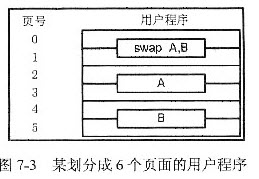“Dining out”, or “eating out”, is a phrase people use in Britain when they eat in a restaurant or a pub. Eating out is more popular in Britain today than ever before.
However, eating out can be expensive. Restaurants are normally more expensive than pubs, though many pubs serve very good, simple food. As British people don’t dine out every night of the week, eating in a restaurant is often seen as a special occasion. When going for the first date, or if celebrating an anniversary or a birthday, many people like to go to a restaurant. People often eat in a restaurant before going to the cinema or the theatre.
As in all cultures, there are many rules of etiquette (礼节)surrounding food and eating, and nowhere is this more pronounced than when eating in a smart restaurant. People are almost always expected to eat with a knife and fork and these should be held in the correct hand and used in the correct way. It is also impolite to have your elbows on the dining table when you are eating.
There’re many such “unspoken” rules — they are normally only important when eating in a very elegant and expensive restaurant, and vary slightly from restaurant to restaurant and place to place. A recent nationwide survey showed that there was a divide in manners between the north and south of Britain — the “worst” manners were in Scotland and the northeast, and the “best” in Wales and the southeast! However, this survey was almost certainly conducted by someone in the southeast, so it may not be entirely fair.
Naturally, restaurants vary greatly in quality and price. However, almost all British cities have a vast range of food and cooking styles to choose from as well as traditional British food,. from the very cheap to the very expensive — French, Italian, Indian, Greek, Thai, Japanese and many more. In fact, when asked what their favorite food is, many British people say an Indian curry (咖喱菜)rather than any other dish!
As well as dining in a restaurant, when people are too tired to cook after work they often get a “takeaway”. This means they order from a takeaway or takeout restaurant by phone, then go to collect it and take it home to eat. Many takeout restaurants also deliver to your house. While you can normally find a takeout restaurant for almost any cuisine, the most popular are Italian, Indian and Chinese — and all you have to do is to open the door, pay and eat!
小题1:What can be concluded from the first two paragraphs?
A.The British spend more eating out than cooking at home.
B.The British pay great attention to eating in a restaurant.
C.The British often dine out when celebrating festivals.
D.People tend to eat in a restaurant after watching a movie.小题2:The underlined word “pronounced” in Paragraph 3 probably means “_____”.
A.polite
B.expensive
C.strange
D.obvious小题3:According to the passage, which of the following statements is true?
A.There exist great differences of rules in different restaurants.
B.People from Wales and southeast Britain are the most polite.
C.Your order in a takeout restaurant can be sent to your home.
D.Traditional British food is seldom served in British restaurants.小题4:What does the passage mainly talk about?
A.Restaurant culture in Britain.
B.Table manners in Britain.
C.Different restaurants in Britain.
D.Traditional and foreign foods in Britain.

